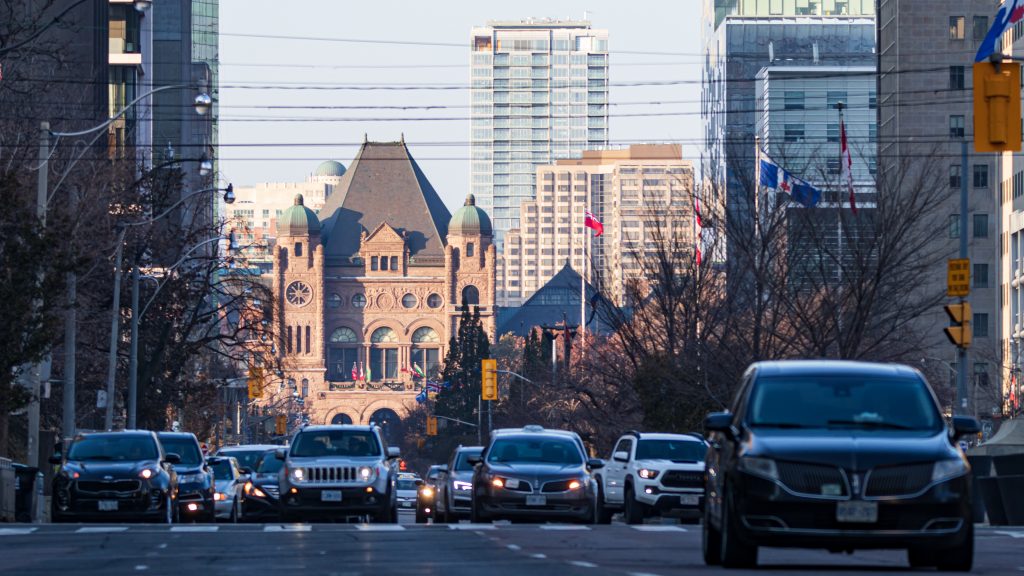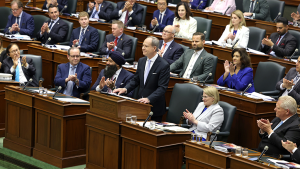Holding back on infrastructure funding will have dire consequences on the province’s economic recovery.
This was a common thread among several construction industry stakeholders who recently made submissions to Minister of Finance Rod Phillips as the Ontario Government prepares the Fall 2020 Budget with a focus on recovering from the pandemic.
The input is meant to aid the government in developing the next phase of Ontario’s Action Plan. The following are highlights from each submission:
Residential and Civil Construction Alliance of Ontario (RCCAO)
RCCAO’s submission states infrastructure is one of the best ways to help Ontario recover from the effects of COVID-19.
A recent report, Navigating the COVID-19 Socio-economic Shock: How Infrastructure Investments Will Facilitate Future Growth in Ontario, commissioned by the RCCAO recommends that the federal and provincial governments commit to investing the same amount in infrastructure as was planned pre-crisis, with the federal government contributing additional funds to Ontario’s capital budget to cover a portion of municipal operating deficits – calculated to be 56 per cent. The balance would be paid by the provincial government. This, states the report, would ensure that municipalities are able proceed with their capital plans.
This scenario and course of action would, over the next decade, result in a gain of 61,000 jobs on average per year (0.9 per cent more on average), as well as $9 billion and $13 billion in federal and provincial government revenue, respectively, compared to the status quo.
The RCCAO also recommends senior levels of government provide funds to maintain municipal assets in a state of good repair and that both Ottawa and Queen’s Park must accelerate infrastructure stimulus funding to “counteract the troubling trend of municipal governments defunding capital programs to cover operational expenses.”
The alliance added it has been advised by contractors that there has been a big reduction in the number of tenders for many types of civil construction work this fall. RCCAO is concerned about impending layoffs of workers, currently estimated at 25,000 direct and indirect job losses, if left unaddressed.
Ontario General Contractors Association (OGCA)
The OGCA’s submission urges the government to invest in infrastructure, including small, medium and large projects, representing both union and open shop contractors.
Holding back on any infrastructure investments in Ontario will exacerbate the effects of the crisis and hamper the province’s recovery.
The government is making inroads with things like the Accelerated Build Pilot Program that will enable the construction of two new long-term care homes in Mississauga in a matter of months and more of those types of projects are needed, the OGCA states.
Furthermore, building permit issuance has been slowing down and the OGCA is concerned about tenders coming out. While a lot of firms are busy in pre-construction, it is due to the backlog which existed prior to the pandemic and it hasn’t transferred over to actual construction.
Support for municipalities is also needed to aid in the recovery. Municipalities are hesitant to put out any projects because they can’t run a deficit, explains the submission, adding they’re going to pull from infrastructure budgets because those are the largest budgets they have. That means key infrastructure is not going to get built.
Council of Ontario Construction Associations (COCA)
COCA’s submission states the Government of Ontario can improve the business climate in the province in four ways: improving the province’s workers’ compensation system; investing in public infrastructure maintenance and expansion; delivering fully on the planned infrastructure program; providing clarity in community benefits clauses; and developing a new skilled trades and apprenticeship system.
In terms of the worker’s compensation system, COCA says ministerial oversight of the Workplace Safety and Insurance Act should be transferred to the Ministry of Finance which is better equipped for the responsibility.
COCA also recommends a Workplace Safety and Insurance Board funding policy be established that defines an ongoing funding corridor of between 95 per cent and 110 per cent in which the funding level can fluctuate without the need to adjust the rate setting calculations. When the system is funded beyond the upper limit, there should be a mechanism through which the WSIB can return monies to employers. When it falls below 95 per cent premium adjustments should be made.
With respect to infrastructure investment, COCA encourages the government to deliver fully on its $14.7 billion commitment for fiscal 2019-20 and on its planned $144 billion investment over the next 10 years.
COCA is also recommending the government to work with stakeholders in the development of a new skilled trades and apprenticeship system that addresses the needs of the labour market, the various trades that may have differing requirements, apprentices, journeypersons and the employers that employ them.
The Residential Construction Council of Ontario (RESCON)
RESCON’s submission includes several industry-related elements such as support for a province-wide electronic permitting system; training and apprenticeship programs; and building code harmonization efforts.
When it comes to electronic permitting in planning, engineering and building permitting, RESCON said the province should endorse an Ontario-wide data platform and the effort to develop best practice approvals process standards that municipalities could then be encouraged to adopt.
To address municipal overreach, RESCON recommends the province continue to support the building code harmonization efforts currently underway and explore ways to remind municipalities that the Ontario Building Code supersedes all municipal bylaws and provides high level of energy efficiency.
In addition, RESCON is asking the province to continue investing and supporting training and education programs in residential construction. According to the submission, Ontario should improve incentives for employers to hire and train young people in voluntary trades and invest in identifying and breaking down existing barriers faced by youth, including those from underrepresented groups.
Skills Ontario
Skills Ontario’s submission recommends scaling up the organization’s programming, increasing commitments to reaching underrepresented groups in skilled trades and sustaining and increasing funding to Skills Ontario.
The organization has existing initiatives and has created new programming in response to the sudden shift to the virtual world in light of the pandemic.
The pandemic has exacerbated an already significant shortage of skilled trades professionals, states the submission, adding through the organization’s partnership with the Government of Ontario, Skills Ontario can develop and deliver initiatives to build the province’s future skilled workforce, engaging youth, parents and employers.
Follow the author on Twitter @DCN_Angela.










Recent Comments
comments for this post are closed